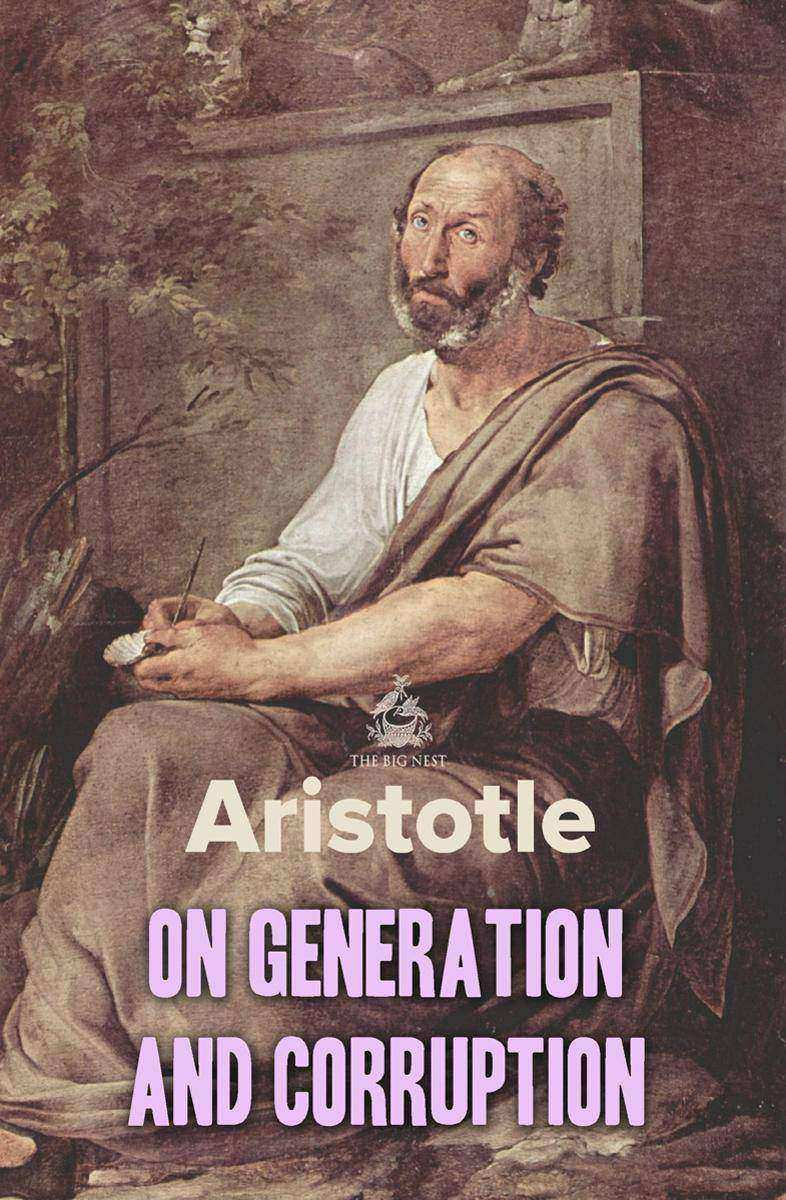
On Generation and Corruption
¥40.79
Our next task is to study coming-to-be and passing-away. We are to distinguish the causes, and to state the definitions, of these processes considered in general-as changes predicable uniformly of all the things that come-to-be and pass-away by nature. Further, we are to study growth and 'alteration'. We must inquire what each of them is; and whether 'alteration' is to be identified with coming-to-be, or whether to these different names there correspond two separate processes with distinct natures.
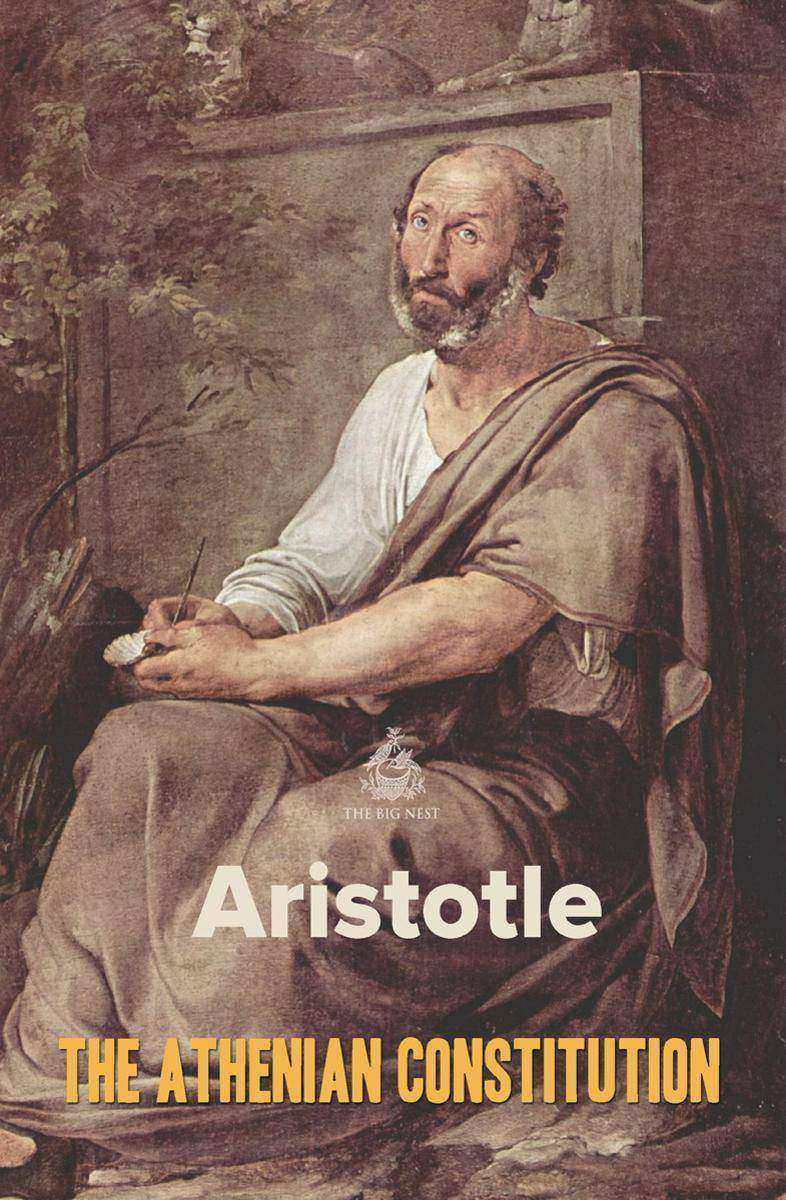
The Athenian Constitution
¥40.79
The Constitution of the Athenians describes the political system of ancient Athens. The treatise was composed between 330 and 322 BC.
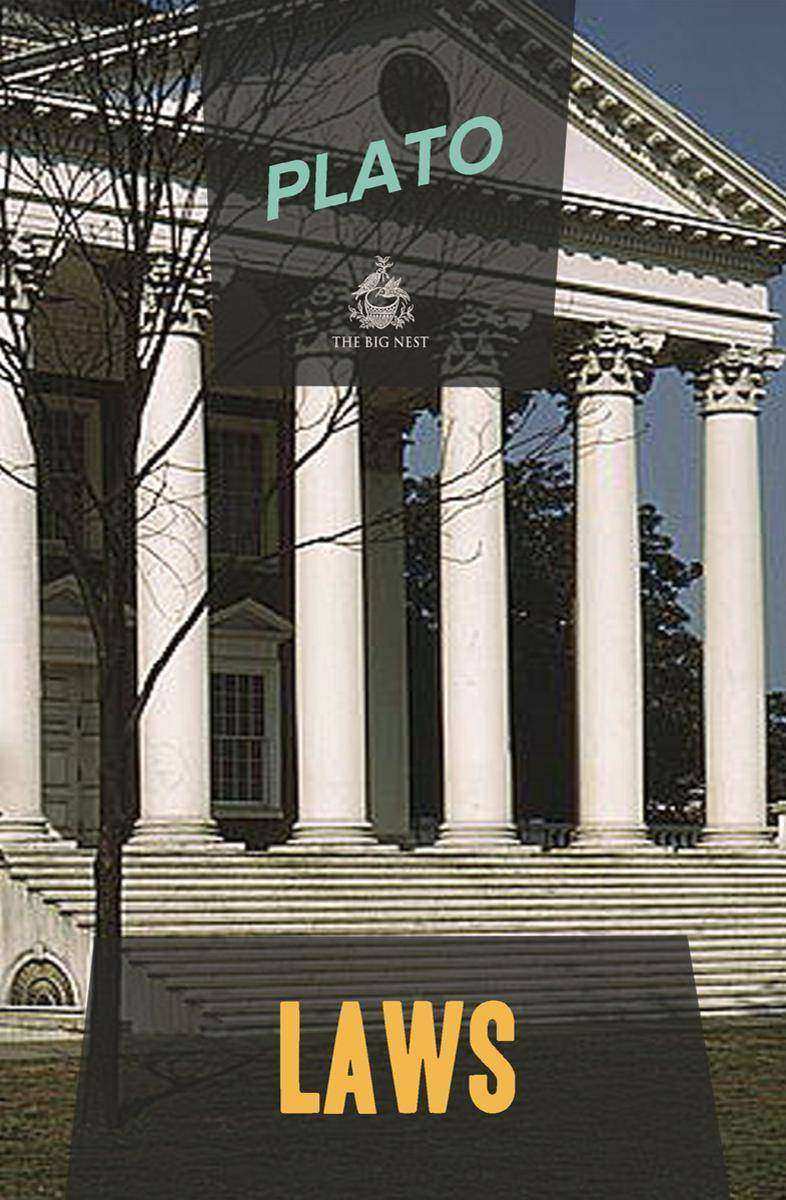
Laws
¥40.79
The Laws are discussed by three representatives of Athens, Crete, and Sparta. The Athenian, as might be expected, is the protagonist or chief speaker, while the second place is assigned to the Cretan, who, as one of the leaders of a new colony, has a special interest in the conversation. At least four-fifths of the answers are put into his mouth. The Spartan is every inch a soldier, a man of few words himself, better at deeds than words. The Athenian talks to the two others, although they are his equals in age, in the style of a master discoursing to his scholars; he frequently praises himself; he entertains a very poor opinion of the understanding of his companions.
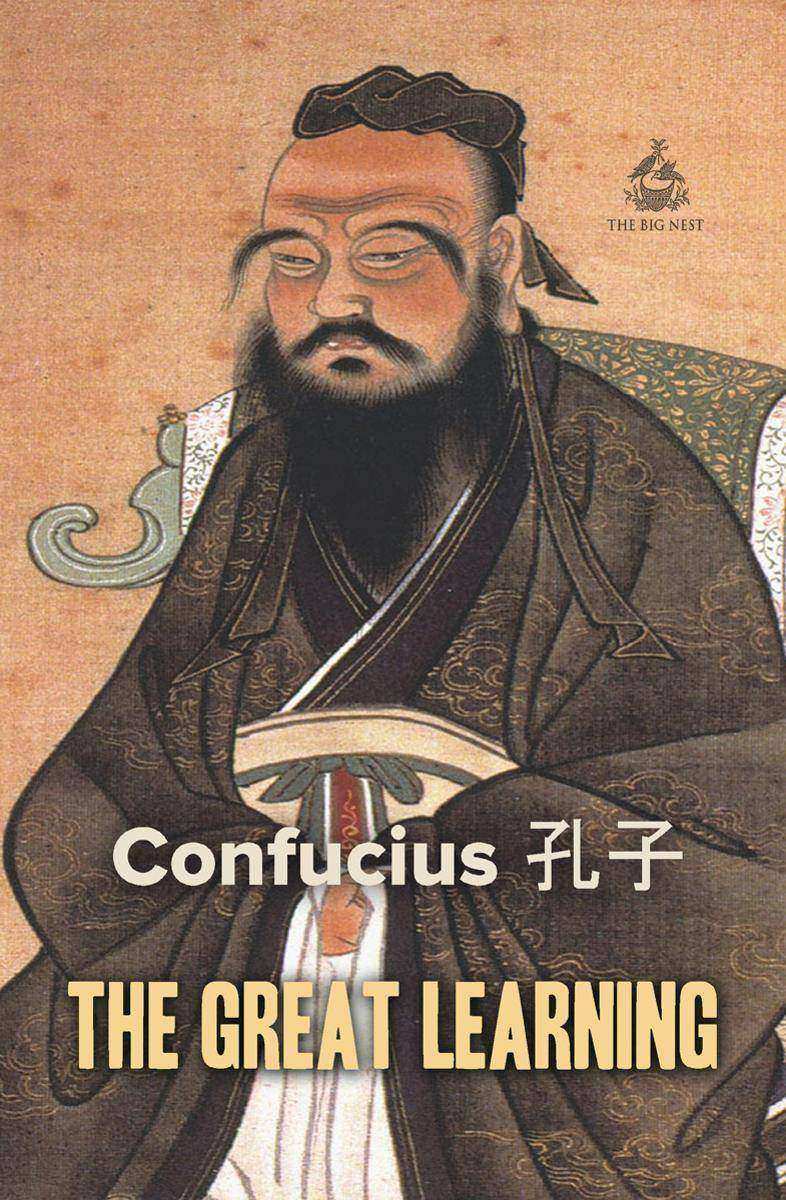
The Great Learning
¥40.79
What the great learning teaches, is to illustrate illustrious virtue; to renovate the people; and to rest in the highest excellence. The point where to rest being known, the object of pursuit is then determined; and, that being determined, a calm unperturbedness may be attained to. To that calmness there will succeed a tranquil repose. In that repose there may be careful deliberation, and that deliberation will be followed by the attainment of the desired end.
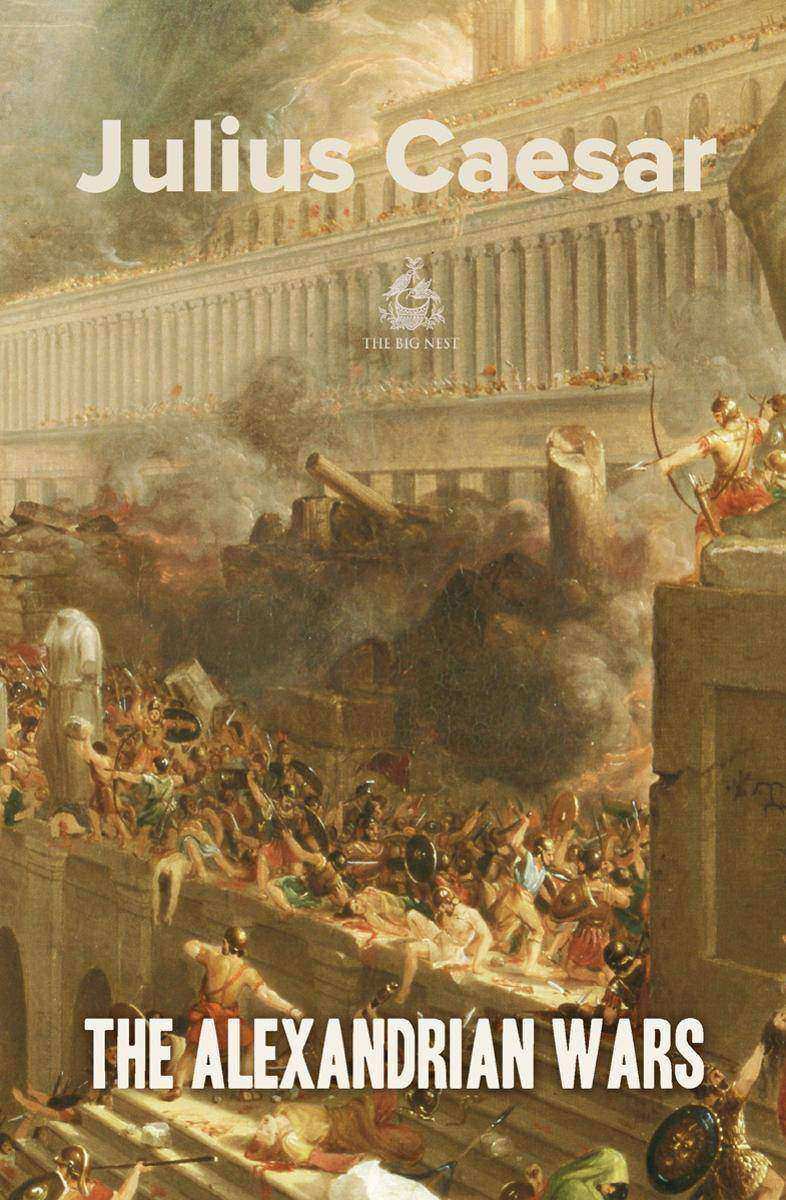
The Alexandrian Wars: English and Latin Language
¥40.79
When the war broke out at Alexandria, Caesar sent to Rhodes, Syria, and Cilicia, for all his fleet; and summoned archers from Crete, and cavalry from Malchus, king of the Nabatheans. He likewise ordered military engines to be provided, corn to be brought, and forces dispatched to him. Meanwhile he daily strengthened his fortifications by new works; and such parts of the town as appeared less tenable were strengthened with testudos and mantelets. Openings were made in the walls, through which the battering-rams might play; and the fortifications were extended over whatever space was covered with ruins, or taken by force. For Alexandria is in a manner secure from fire, because the houses are all built without joists or wood, and are all vaulted, and roofed with tile or pavement.
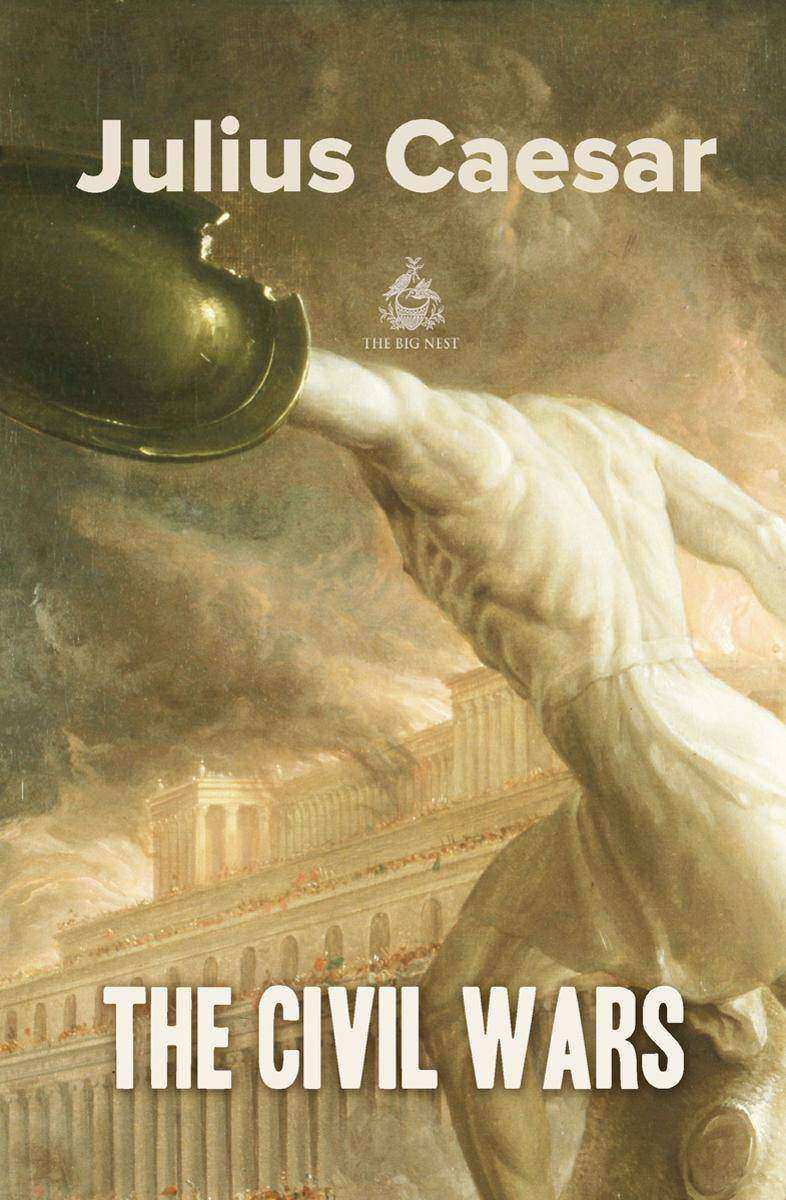
The Civil Wars, Book 3
¥40.79
Julius Caesar, holding the election as dictator, was himself appointed consul with Publius Servilius; for this was the year in which it was permitted by the laws that he should be chosen consul. This business being ended, as credit was beginning to fail in Italy, and the debts could not be paid, he determined that arbitrators should be appointed: and that they should make an estimate of the possessions and properties of the debtors, how much they were worth before the war, and that they should be handed over in payment to the creditors. This he thought the most likely method to remove and abate the apprehension of an abolition of debt, the usual consequence of civil wars and dissensions, and to support the credit of the debtors.
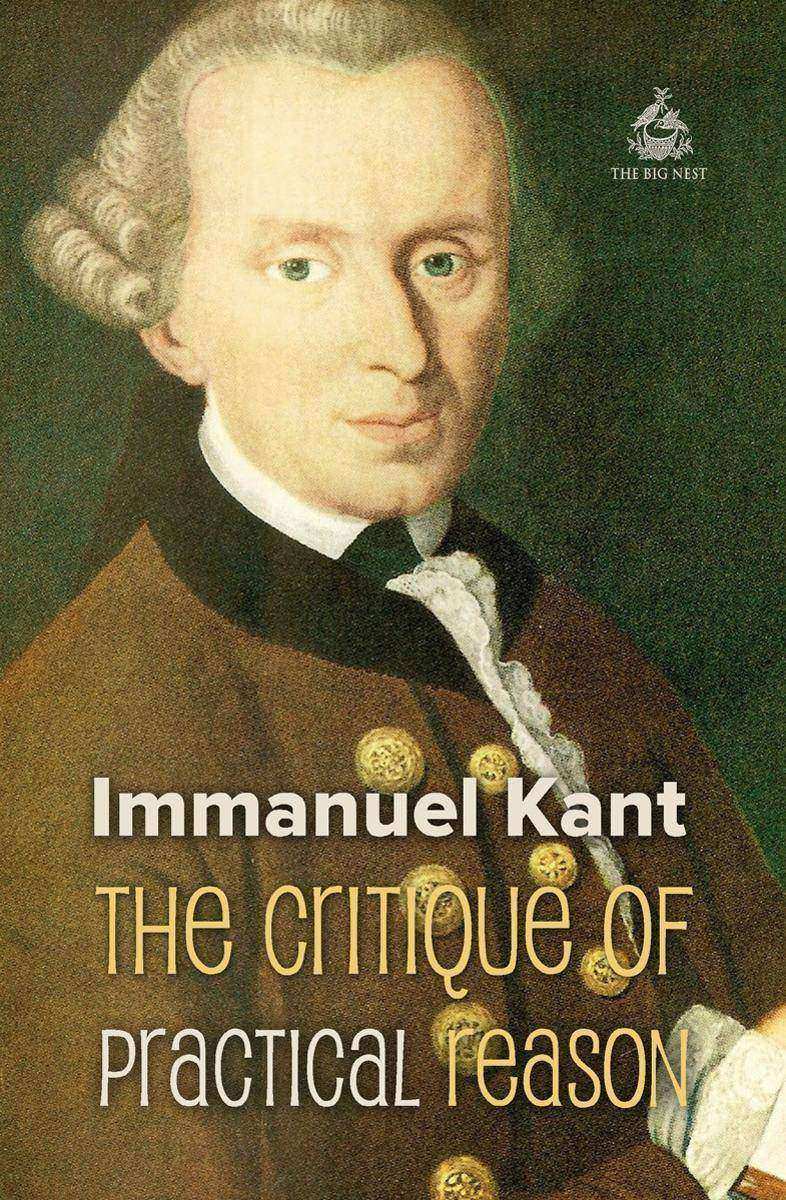
The Critique of Practical Reason
¥40.79
The Critique of Practical Reason follows on from Kant's Critique of Pure Reason and deals with his moral philosophy. The second Critique exercised a decisive influence over the subsequent development of the field of ethics and moral philosophy, beginning with Johann Gottlieb Fichte's Doctrine of Science and becoming, during the 20th century, the principal reference point for deontological moral philosophy.
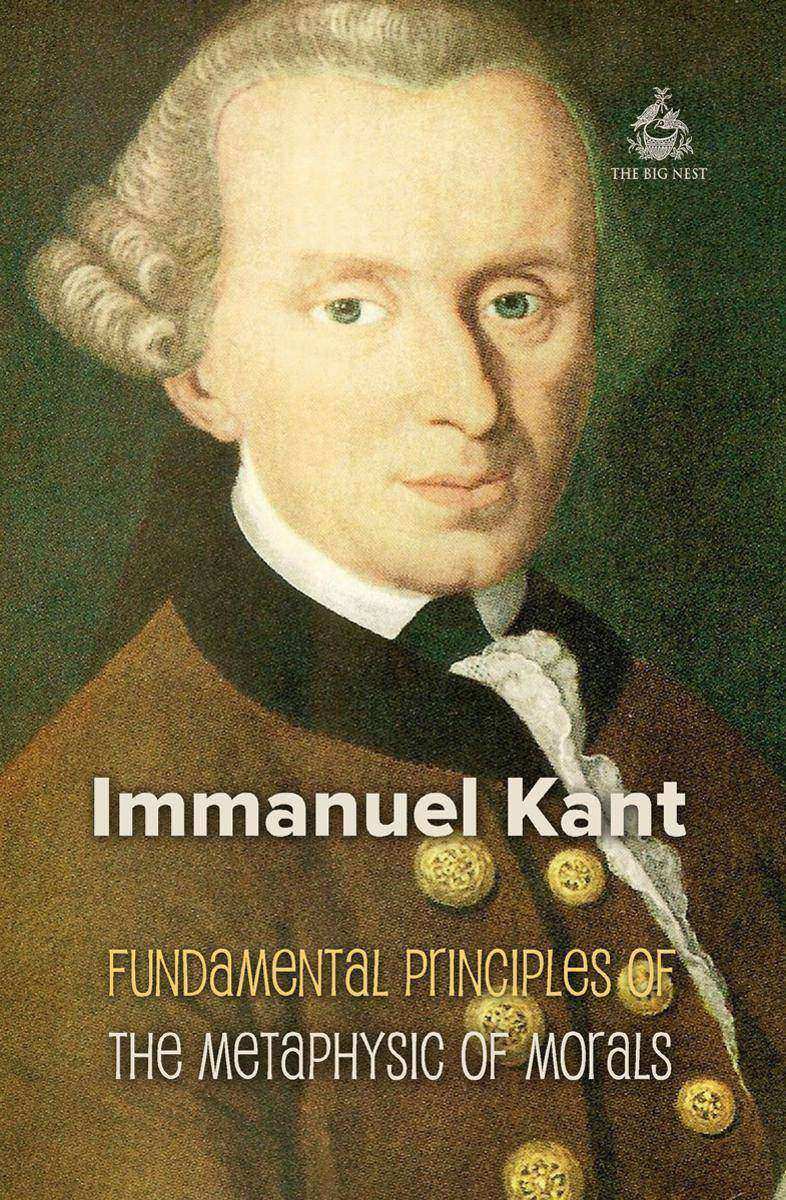
Fundamental Principles of the Metaphysic of Morals
¥40.79
The first of Immanuel Kant's mature works on moral philosophy and remains one of the most influential in the field. Kant conceives his investigation as a work of foundational ethics, one that clears the ground for future research by explaining the core concepts and principles of moral theory and showing that they are normative for rational agents. Kant aspires to nothing less than this: to lay bare the fundamental principle of morality and show that it applies to us.
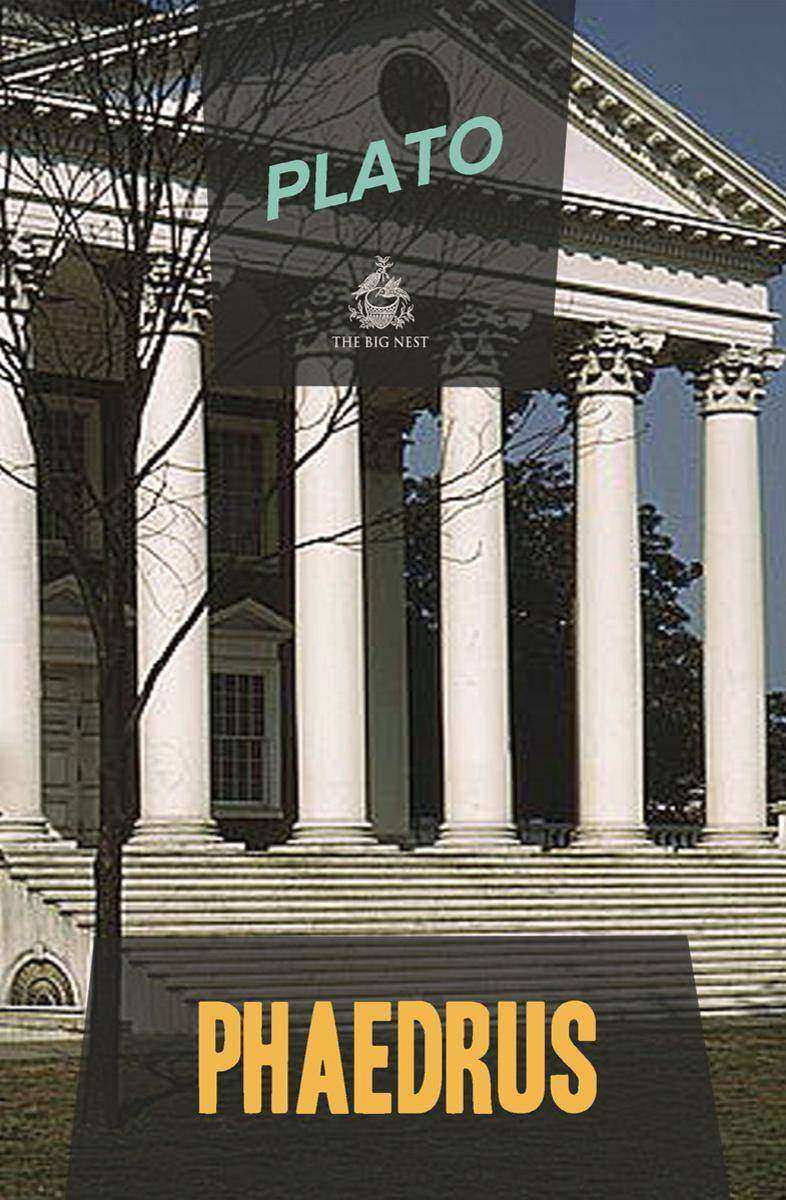
Phaedrus
¥40.79
The Phaedrus is closely connected with the Symposium, and may be regarded either as introducing or following it. The two Dialogues together contain the whole philosophy of Plato on the nature of love, which in the Republic and in the later writings of Plato is only introduced playfully or as a figure of speech. But in the Phaedrus and Symposium love and philosophy join hands, and one is an aspect of the other. The spiritual and emotional part is elevated into the ideal, to which in the Symposium mankind are described as looking forward, and which in the Phaedrus, as well as in the Phaedo, they are seeking to recover from a former state of existence.
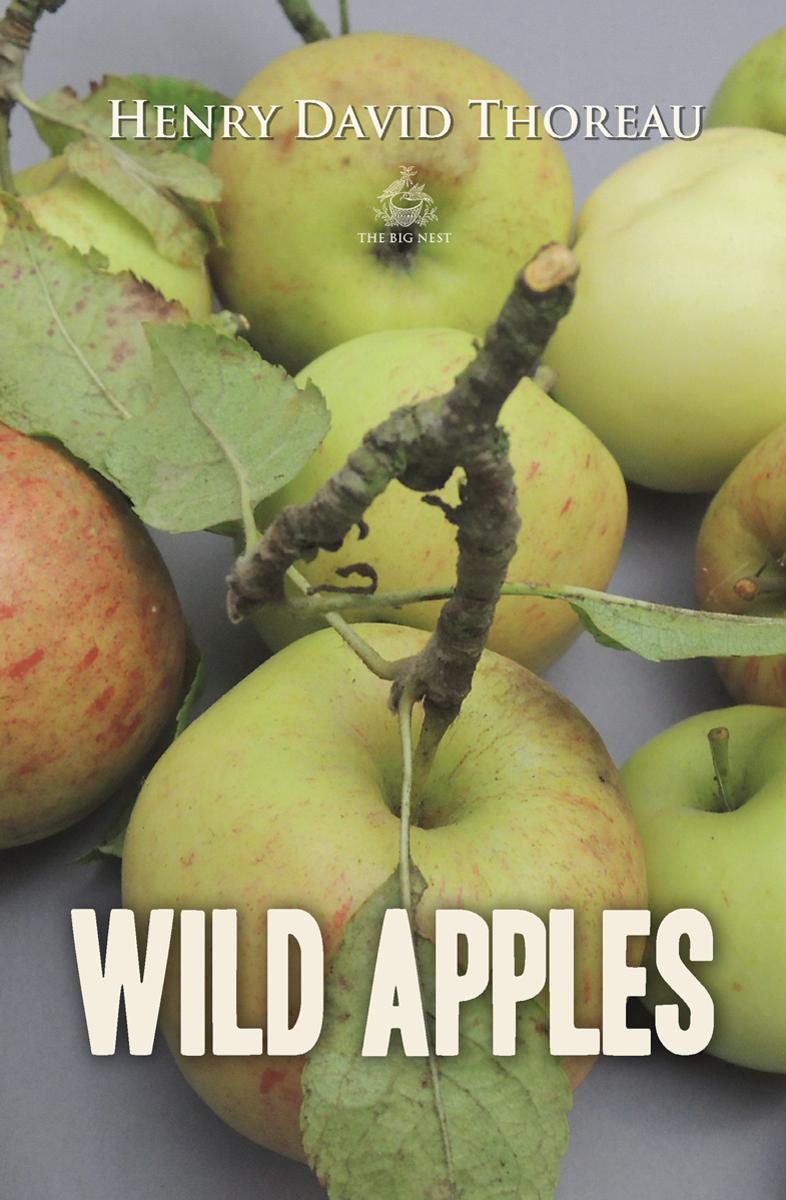
Wild Apples
¥40.79
It is remarkable how closely the history of the Apple-tree is connected with that of man. The geologist tells us that the order of the Rosaceae, which includes the Apple, also the true Grasses, and the Labiatae, or Mints, were introduced only a short time previous to the appearance of man on the globe.
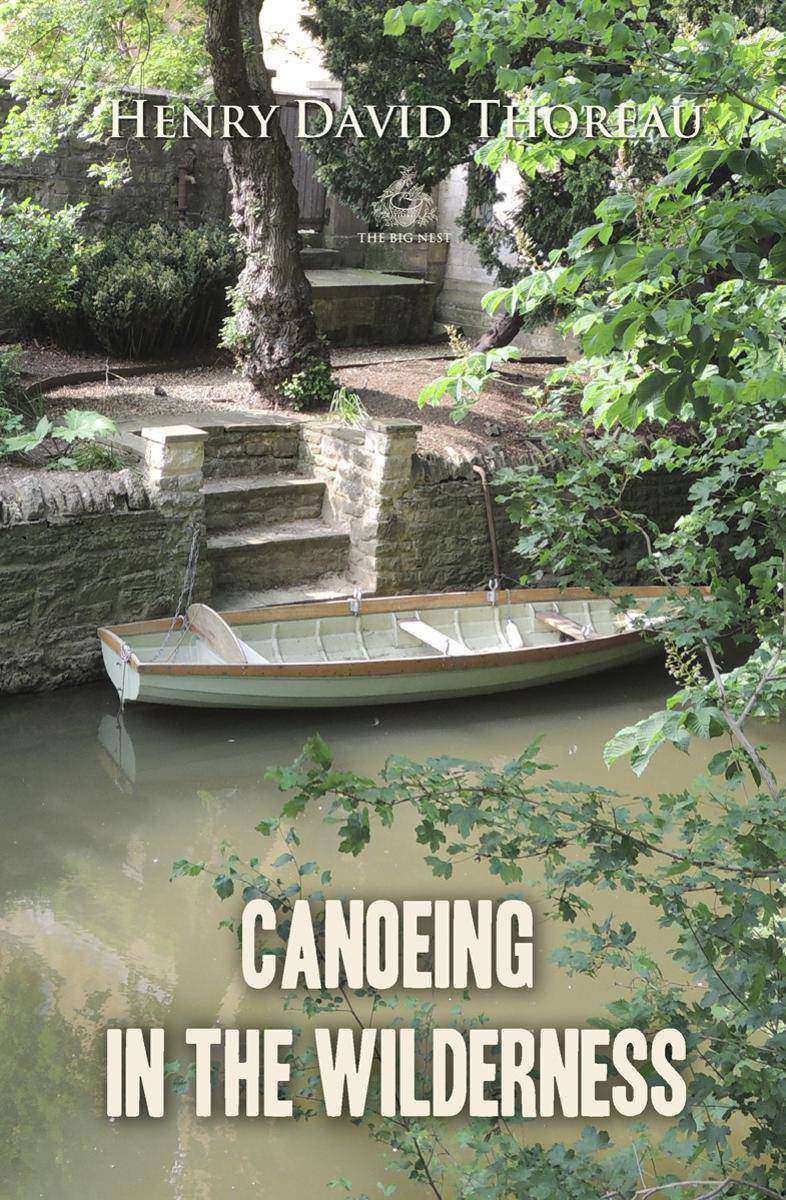
Canoeing in the wilderness
¥40.79
At the time Thoreau made this wilderness canoe trip he was forty years old. The record of the journey is the latter half of his The Maine Woods, which is perhaps the finest idyl of the forest ever written. It is particularly charming in its blending of meditative and poetic fancies with the minute description of the voyager’s experiences.
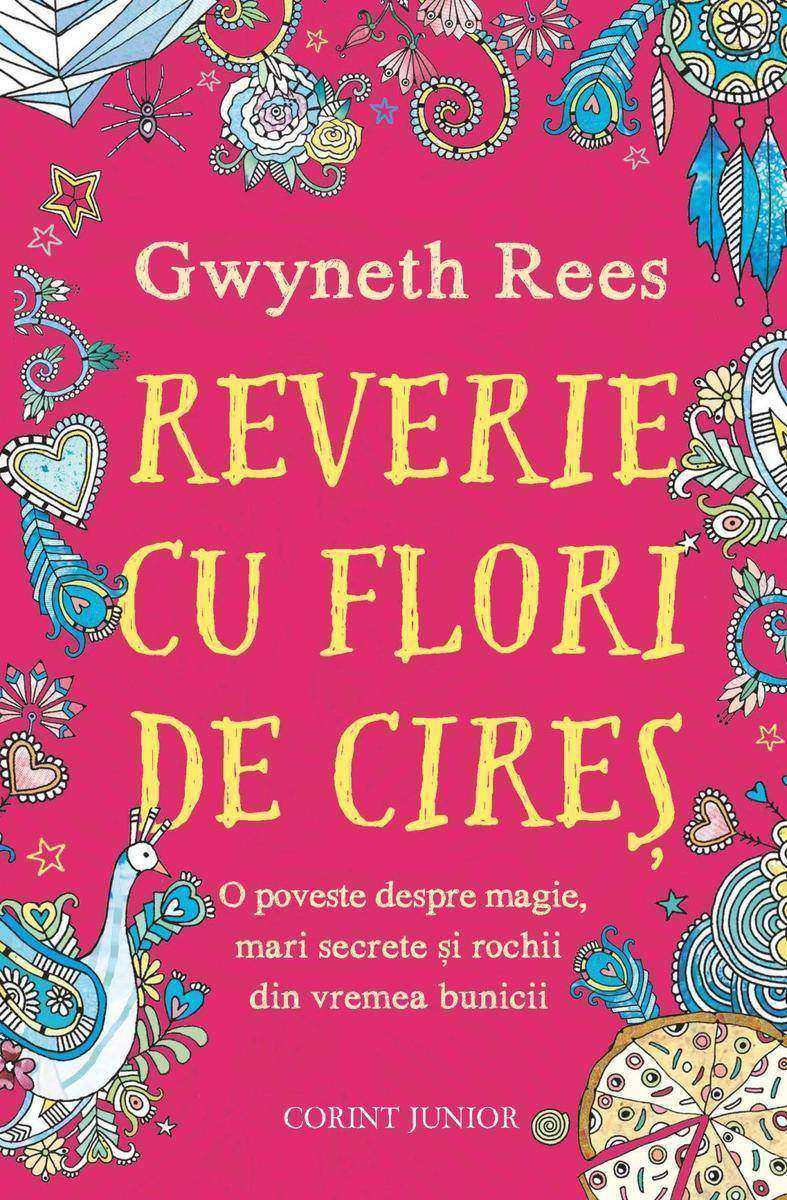
Reverie cu flori de cire
¥40.79
A fi rom?n? ?E o ru?ine!“, exclama Cioran. ?n ce m?sur? filosoful de la Paris avea dreptate? Ce ?nseamn? ?a fi rom?n“ ?ntr-o fals? tranzi?ie care aparent nu se mai termin?? La aceste ?i multe alte ?ntreb?ri ?ncearc? s? r?spund? scriitorul Ionel Necula ?n opus-ul de fa??, care ?nsumeaz? analize ale r?sturn?rilor sociale evidente, ?nregistrate ?n ultimii ?aptesprezece ani. Nu ?ntotdeauna comod, spiritul coroziv al autorului ??i spune cuv?ntul, av?nd uneori accente incendiare.
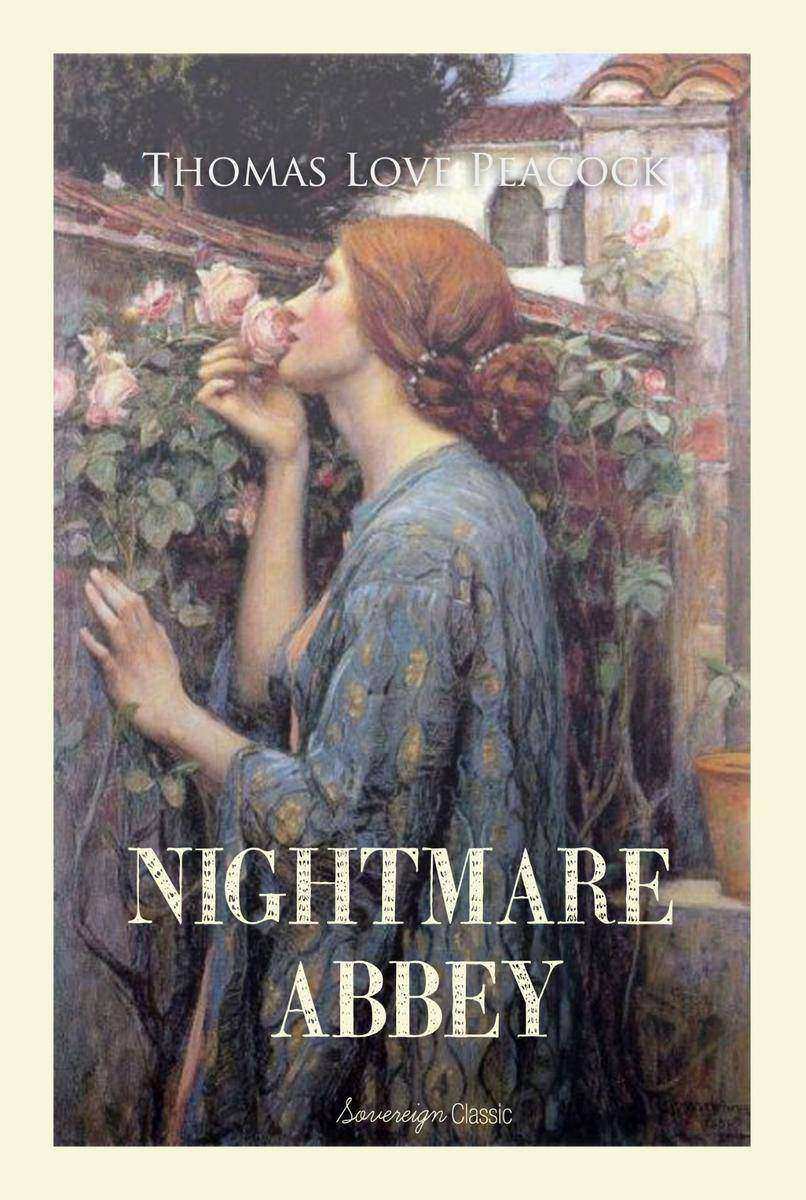
Nightmare Abbey
¥40.79
A morose widower, Mr Glowry lives with his only son Scythrop in his semi-dilapidated family mansion Nightmare Abbey, which is situated on a strip of dry land between the sea and the fens in Lincolnshire. Mr Glowry is a melancholy gentleman who likes to surround himself with servants with long faces or dismal names such as Raven, Graves or Deathshead. The few visitors he welcomes to his home are mostly of a similar cast of mind: Mr Flosky, a transcendental philosopher; Mr Toobad, a Manichaean Millenarian; Mr Listless, Scythrop's languid and world-weary college friend; and Mr Cypress, a misanthropic poet.


日常的深处
¥40.60
在物质生活高度繁荣的今天,人们时常被外物所累,“想”回到相对贫乏的过去,重回人与物的和谐关系。 为什么柴火灶比煤气灶烧菜更香? 为什么自行车比汽车似乎更能承载? 为什么炉子比暖气更暖人心? 这种对过去生活的罗曼蒂克的想法值得玩味。作者王小伟琢磨了一种恰当的、刻画生活的手段,从怀旧的影像中梳理内心,透过自身的经验和长辈的回忆,回顾*十年代以来我们熟悉的技术人工物(俗称“东西”)是如何生灭的,试图解释为什么在之前的岁月物件是如此金贵,仿佛家庭成员,而现在的物件变成了纯粹的商品,不再需要人花心力照顾,只剩下干瘪的使用价值。这或许反映了人们生活底层的逻辑发生了不小的变化。 本书中所谈论的诸多技术物是“70后”“80后”和“90后”共同的回忆,有些是比较单纯的设备,比如电视、手机,有些是直接和生活相关的技术产品,比如住房和穿衣,还有饮食。王小伟以技术哲学为基,打破学术和文学的壁垒,写下这本以日常用品为主角的小书,刻画一段我们共同走过的集体历史。


什么是权力?
¥40.60
关于权力概念,仍然存在理论上的混乱。这一现象如此不言而喻,概念本身却如此晦暗不明,二者形成了鲜明对比。对一些人来说,权力意味着压制。对另一些人来说,权力是一种建构性的交往要素。法学、政治学和社会学的权力概念不可调和地相互对立。权力有时关乎自由,有时与胁迫相连。有人认为,权力建立在集体行动之上。其他人认为,它与斗争相结合。有人把权力和暴力截然分。对其他人来说,暴力仅仅是一种强化的权力形式。权力有时与法律相关,有时与专断相结合。 鉴于这种理论上的混乱,应当寻找一个灵活的权力概念,能够把不同的权力观念统一起来。需要制定一种权力的基本形式,通过转变内部的结构要素,从而产生出不同的表现形式。本书正是基于这一理论预设。 在对卢曼、卡内蒂、福柯、海德格尔、施米特、阿伦特、哈贝马斯等人逐一行检阅和辨析后,作者提请我们注意尼采权力意志的另一面向:“它不为自己谋求任何东西,却奉献了自己的一切。” -------------------- 韩炳哲作品(第2辑) 《山寨:中国式解构》(2023年1月出版) Shanzhai. Dekonstruktion auf Chinesisch. 《超文化:文化与全球化》(2023年1月出版) Hyperkulturalität. Kultur und Globalisierung. 《妥协社会:今日之痛》(2023年1月出版) Palliativgesellschaft. Schmerz heute. 《不在场:东亚文化与哲学》(2023年7月出版) Abwesen. Zur Kultur und Philosophie des Fernen Ostens. 《禅宗哲学》(2023年8月出版) Philosophie des Zen-Buddhismus. 《什么是权力?》(2023年7月出版) Was ist Macht? 《仪式的消失:当下的世界》(2023年8月出版) Vom Verschwinden der Rituale.Eine Topologie der Gegenwart. 《资本主义与死亡驱力》(2023年8月出版) Kapitalismus und Todestrieb. 《沉思的生活,或无所事事》(2023年7月出版) Vita contemplativa.oder von der Untätigkeit. 韩炳哲作品(第3辑) 《大地颂歌:花园之旅》(2024年1月即将出版) Lob der Erde. Eine Reise in den Garten. 《时间的香气:驻留的艺术》(2024年1月即将出版) Duft der Zeit. Ein philosophischer Essay zur Kunst des Verweilens. 《叙事的危机》(2024年1月即将出版) Die Krise der Narration.

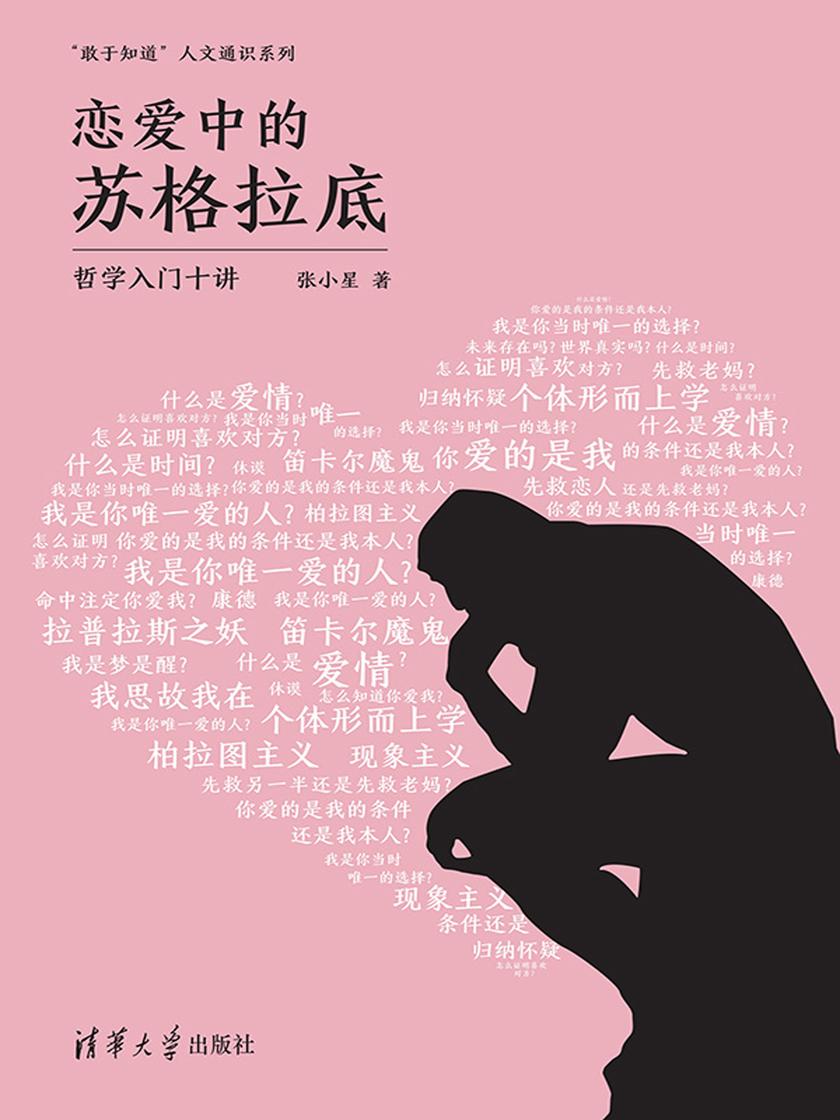
恋爱中的苏格拉底:哲学入门十讲
¥40.60
“你怎么证明喜欢我?” “你爱我的条件还是我本人?” “我们是注定在一起吗?” …… 恋人总爱问这些奇怪的问题。如果你给不出答案,对方一定会非常生气。可是,这些问题其实非常艰深——一个人本人真的和条件不同吗?什么又是“注定在一起”?这些其实都是延续了千百年的哲学问题。 本书以恋爱为视角,通过恋人的十个经典提问,讲解十个基础哲学问题,涵盖认识论、形而上学、伦理学等哲学基本领域。原来,恋人们在认真追问的时候,常常和哲学家不谋而合呢。

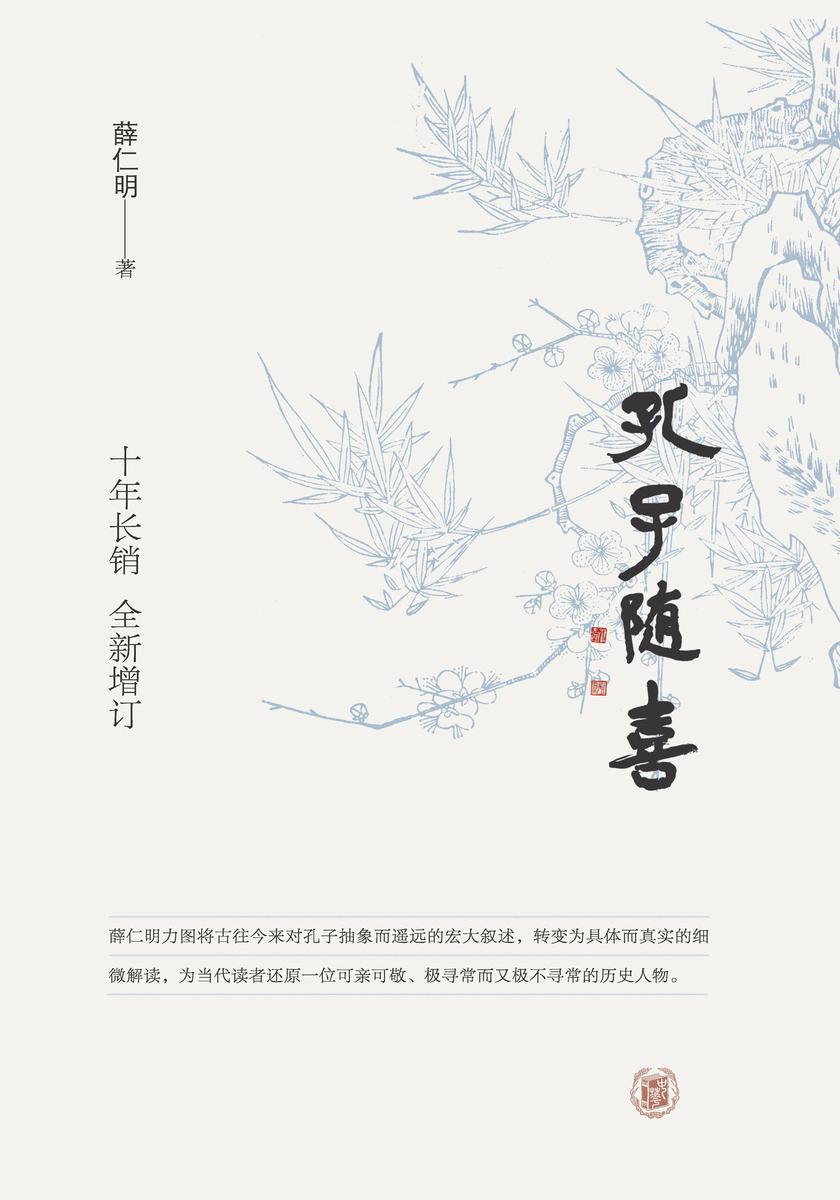
孔子随喜(精) 中华书局出品
¥40.60
中国生命的学问,从来就紧扣着体会与实践,务求当下之对应。《论语》之所以迷人,也正因那里头的生命对应,处处鲜活。薛仁明谈孔子,对应书名,讲的是个“喜”字,如实对应,又随缘欢喜。《孔子随喜》,谈的是两千五百年前的孔门话语,对应的则是这个时代。《论语》是既往,更是当下。 《孔子随喜》是薛仁明代表作,此次由中华书局增订出版,力图将古往今来宏大的虚构的孔子转变为私人的情感和具体的民间解读,把早已概念化的孔子描述成如此有趣、清新、通达且生机活泼的寻常人物,通过薛仁明所看到的那个亲切的孔子,读来令人神清气爽、趣味盎然且气象万千。
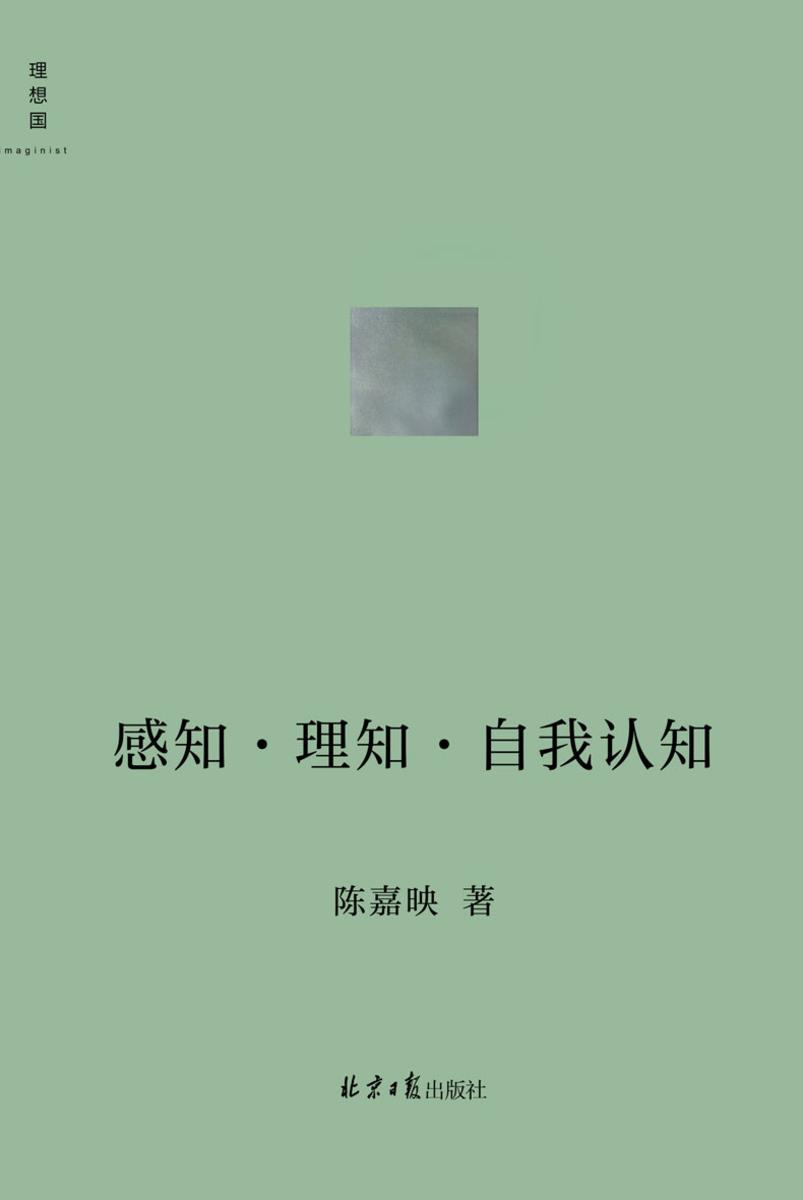
感知·理知·自我认知
¥40.60
“感知”“理知”“自我认知”是著名哲学家陈嘉映先生长期思考和研究的主题。秉持一贯的论述特,在本书中,他从精微的概念辨析手,去分析哲学中此类论理词背后的理路,而拆掉概念的围墙,将其贯穿、通,让我们看到它们之间的联系,以及与我们生活的联系。不管谈感知、理知还是自我认知,他总是连着我们每个人的生活在谈,连着整个时代、人类经历过来的一个个时代在谈。 在今天这个理知落幕的时代,面对技术化、数字化的大形势,如何认知我们在世界中的位置,如何认知我们自身在人之中的位置,本书提供了一个深而又有新意的视角,让我们对这个世界重新产生感觉,更有力量去应对当下的问题。 这不是艰涩的哲学论文,也不是一部研究性著作,而是一位始终关注人在世界之中如何生活的哲学家将他的多年思考以易懂的方式聊给我们听。

从惊奇开始
¥40.60
青少年亲近哲学,也许就像恋爱一样,是一种本能。当处于这一成长阶段时,他们的自我意识始觉醒,始对世界投以怀疑和好奇的目光,始去追问“我是谁”“我的存在有何不同”“人生的意义是什么”……基于青少年的认知和心理特,立足当下语境,本书邀请八位高校哲学系教师担任主讲人,围绕自我、生命、幸福、爱、心灵、科学等经典哲学问题,以情景化的方式,结合日常生活中的例子,将抽象的哲学概念化为生动的讲述,去回应青少年存在的困惑,启他们的探究与发问之旅,而帮助他们跳脱习以为常的思维,形成自己的独立思考和判断,并让内心变得丰盈而深刻。与此同时,对于所有曾在青少年时期有过这种人生之问或者在长大后的某一时刻重新始思考这些问题的成年人,本书也是一个让你再次踏上自我思考之旅的契机。
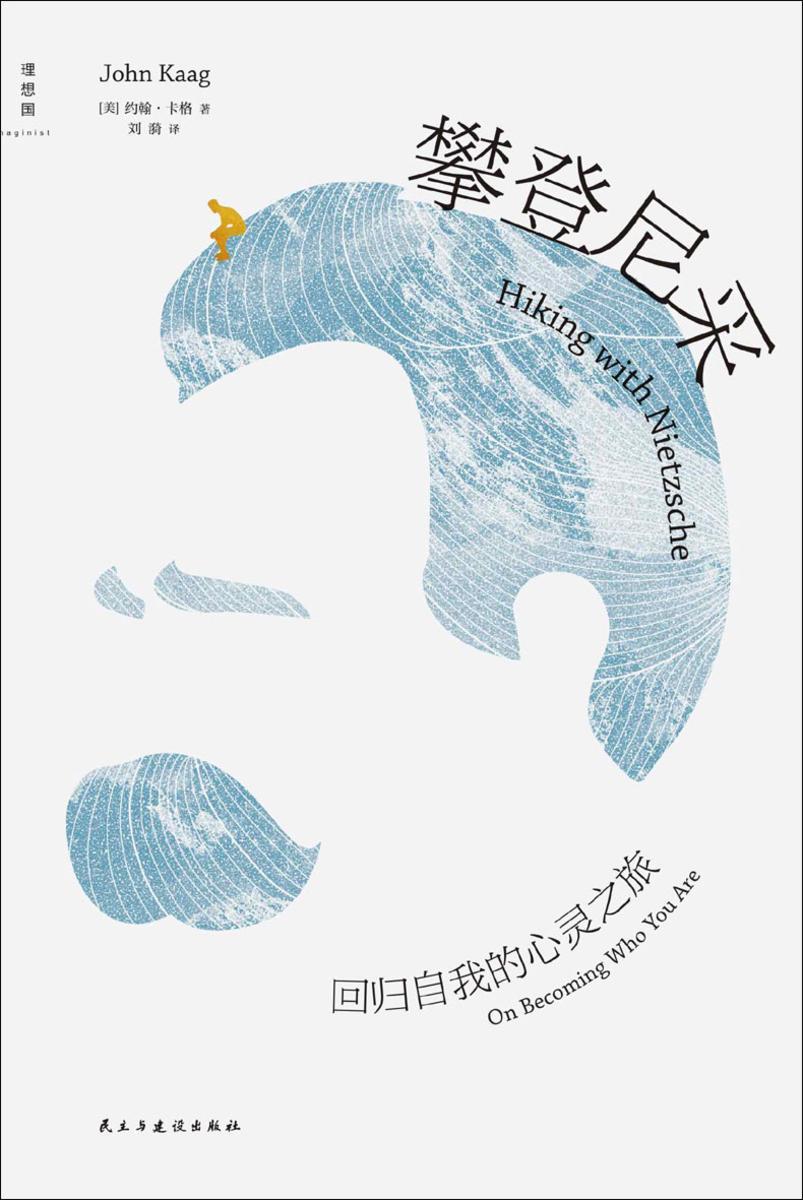
攀登尼采:回归自我的心灵之旅
¥40.60
这是一个关于两次哲学之旅的故事:一次发生在约翰·卡格的青年时期,19岁的他只身前往阿尔卑斯山,在群山间寻找尼采写下名作《查拉图斯特拉如是说》的灵感之源;另一次则发生在17年后,人到中年的卡格已经为人夫、为人父,在截然不同的心境之下携妻女重上阿尔卑斯山,再度与尼采的困境与救赎相遇。 何为“超人”?如何“成为你自己”?这是尼采哲学中两个极为关键的命题,而本书作者卡格认为,这两个问题在某个层面上可以合而为一。“超人”是对平凡自我的超越,但实际上也正在“自我”之中;“自我”并非一个被动存在于某处等待我们去发现的事物,而是一个在不断积极变化的过程中才能显现出来的形象。 攀登尼采,是攀登尼采走过的崎岖山峰,是攀登尼采哲学中的精奥之处,也是在攀登的姿态里叩响与尼采理想的共鸣,在人生无可避免的坠落处,找到那条回归自我的“超人”之路。

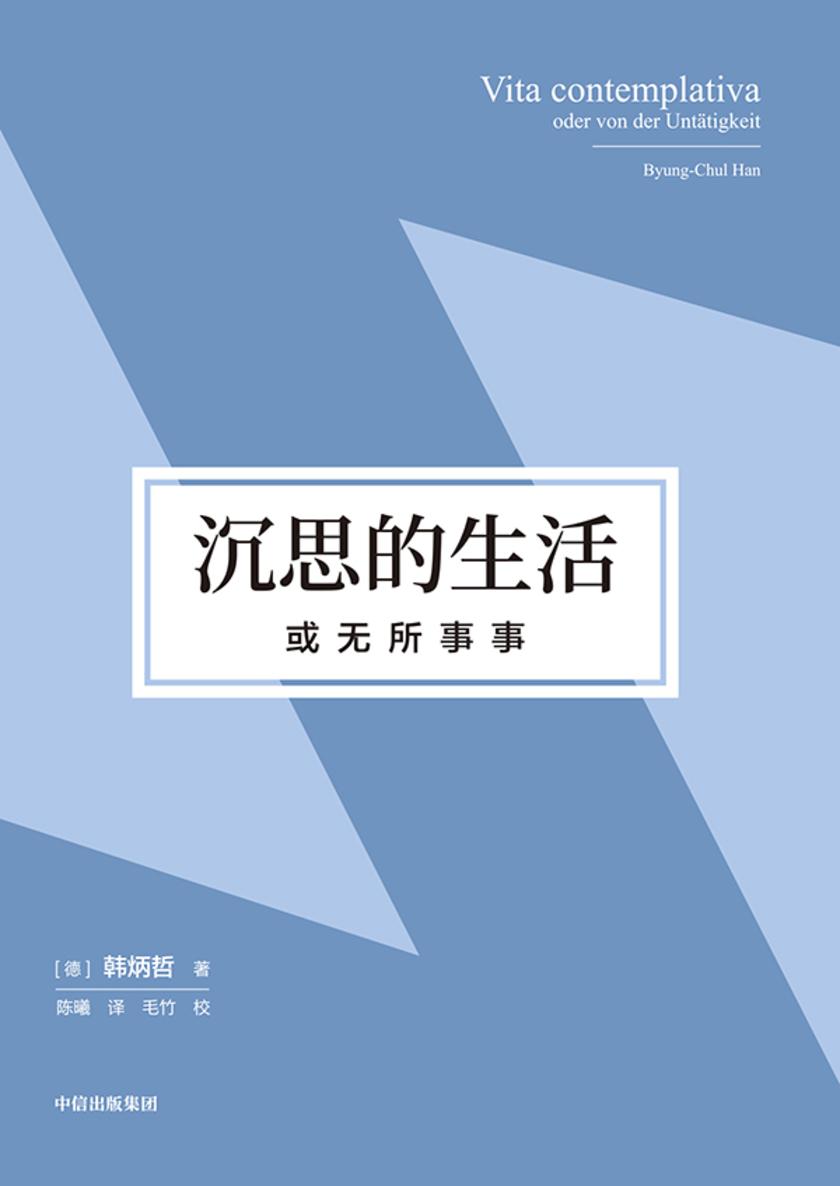
沉思的生活,或无所事事
¥40.60
“滚动着,像石头一样滚动着,按照愚蠢的机械定律。”——我们正在成为这样一群行动者。我们对生活的感知只剩工作和绩效,“无所事事”也就成了我们想尽快清除的赤字。人的存在被行动榨干,变成可以被剥削的对象。我们失去了对无所事事的感知。无所事事不是无力行动、拒绝行动,也不是简单地在行动中缺席,而是一种独立的能力。它有自身的逻辑和语言,有其自身的时间性,有自身的结构与气势,甚至有其自身的魔力。 无所事事是人性的构成部分。它参与到“做”中来,让“做”实实在在具有了人性。倘若没有迟疑和中止,行动将沦为盲目的活动与反应。缺失了安宁,就会出现一种新的野蛮。 假若失去无所事事的能力,我们就会像一部只会运转的机器。对生存的忧虑和纯然属于生命的困苦终止之处,便是真正生命的起。无所事事是人努力的最终目标。在来临中的和平国度里,人不过是“生命体共和国”的公民,与植物、动物、石头、云、星无异。 -------------------- 韩炳哲作品(第2辑) 《山寨:中国式解构》(2023年1月出版) Shanzhai. Dekonstruktion auf Chinesisch. 《超文化:文化与全球化》(2023年1月出版) Hyperkulturalität. Kultur und Globalisierung. 《妥协社会:今日之痛》(2023年1月出版) Palliativgesellschaft. Schmerz heute. 《不在场:东亚文化与哲学》(2023年7月出版) Abwesen. Zur Kultur und Philosophie des Fernen Ostens. 《禅宗哲学》(2023年8月出版) Philosophie des Zen-Buddhismus. 《什么是权力?》(2023年7月出版) Was ist Macht? 《仪式的消失:当下的世界》(2023年8月出版) Vom Verschwinden der Rituale.Eine Topologie der Gegenwart. 《资本主义与死亡驱力》(2023年8月出版) Kapitalismus und Todestrieb. 《沉思的生活,或无所事事》(2023年7月出版) Vita contemplativa.oder von der Untätigkeit. 韩炳哲作品(第3辑) 《大地颂歌:花园之旅》(2024年1月即将出版) Lob der Erde. Eine Reise in den Garten. 《时间的香气:驻留的艺术》(2024年1月即将出版) Duft der Zeit. Ein philosophischer Essay zur Kunst des Verweilens. 《叙事的危机》(2024年1月即将出版) Die Krise der Narration.




 购物车
购物车 个人中心
个人中心



